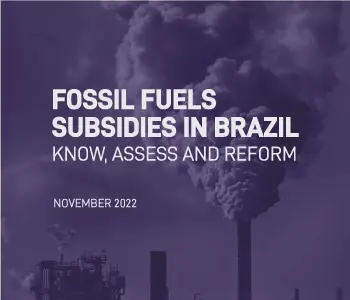The gradual departure from fossil fuel use toward energy transition is key for facing the climate crisis. The Intergovernmental Panel on Climate Change – IPCC’s sixth report has highlighted how pressing it is to move toward ambitious emission cuts in the short term in order to have a chance to limit the rise in global temperatures to 1.5 °C by the end of the 21st century: the world needs to reduce by 43% its emissions from coal, oil and natural gas burning by 2030, compared to 2019. However, moving in the opposite direction to this urgent matter, according to the Organization for Economic Cooperation and Development – OECD and the International Energy Agency – IEA, incentives to fossil fuels around the world almost doubles in 2021, reaching 697.2 billion dollars, a 92.4% increase compared to 2020.
In this context, we release the fifth edition of the study “Subsidies to fossil fuels: know, assess and reform”, with data for the year 2021. Despite having a relatively clean energy and electricity matrix, Brazil has a strong structure of subsidies to fossil fuels, which encourages both production and consumption of oil, natural gas and mineral coal in the country.


